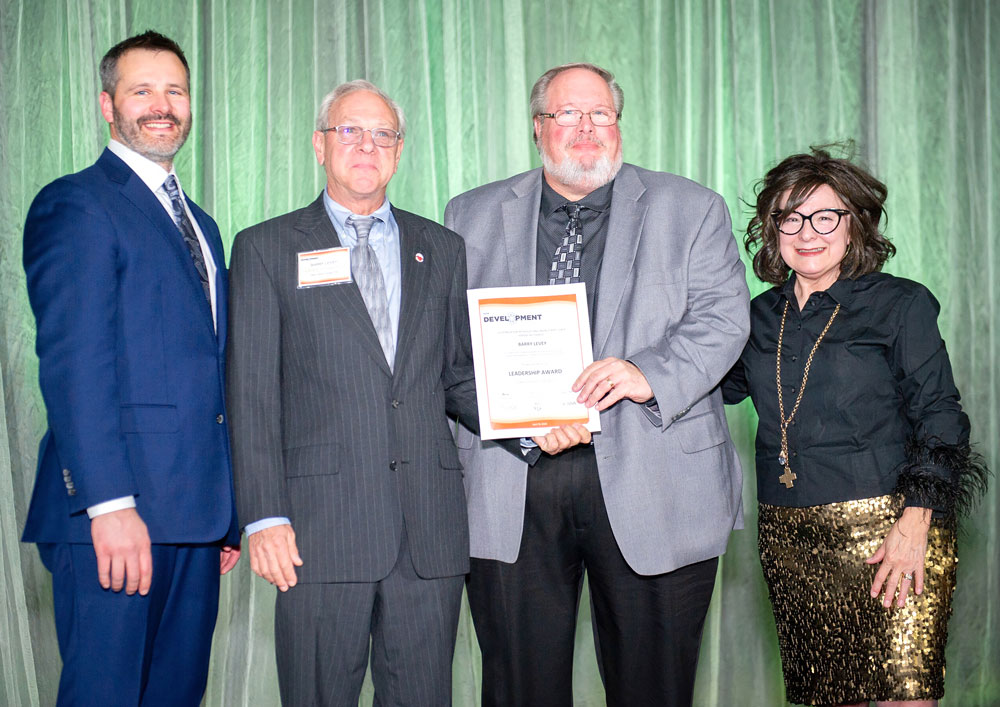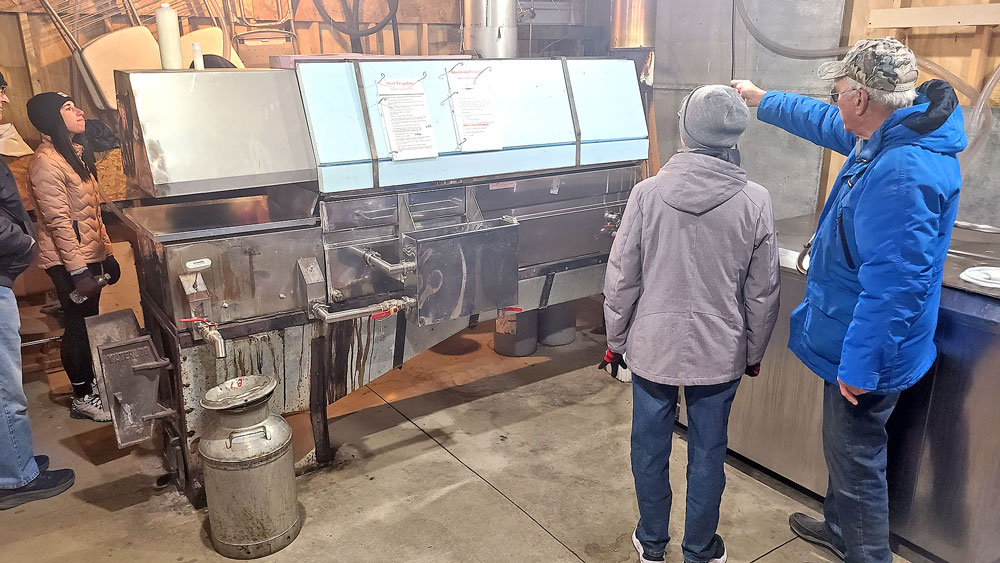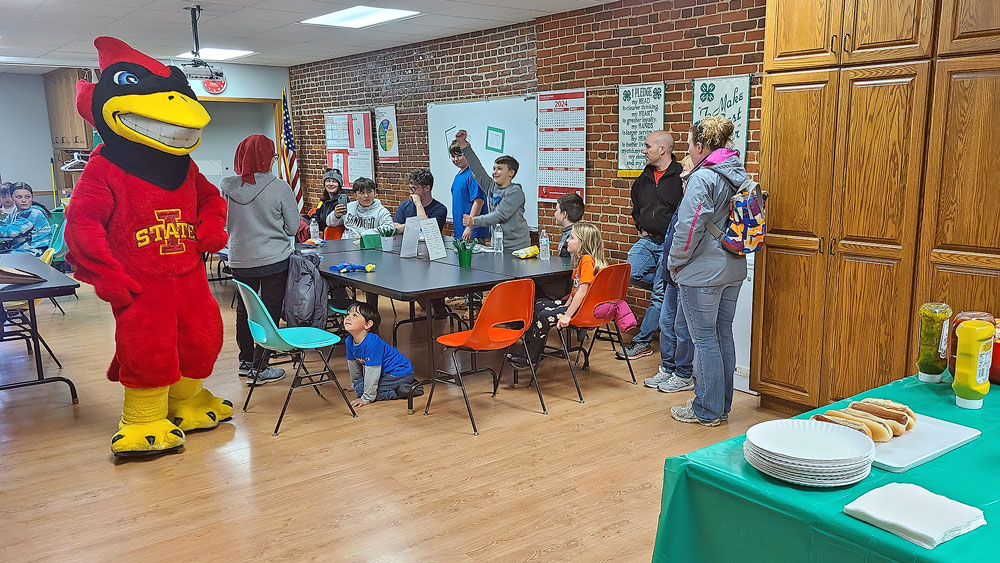Brown, Prichard talk about conservation at town hall meeting
By James Grob, jgrob@charlescitypress.com
A bill to eliminate Iowa’s Forest Reserve program keeps showing up on Iowa Sen. Waylon Brown’s desk.
“Last year that bill was assigned to me, to eliminate the Forest Reserve,” said Brown, a Republican from St. Ansgar who serves on the transportation, commerce, ways and means, labor and business and agriculture committees.
“So I held a subcommittee, and I will tell you it did not move out of the subcommittee because of the interest groups that came from the forestry industry — conservation groups, all the way to timber industry representatives, who spoke out about the benefits of the forestry reserve.”
Brown said he introduced a bill that would’ve put together an advisory committee to collect more data on the forestry industry as a whole. Both bills died in committee last year — but this year, the first bill came back. So Brown said he once again re-introduced his second bill.
“I don’t know if either one of those pieces of legislation is going to move, quite honestly,” Brown said.
Brown and Iowa Rep. Todd Prichard, D-Charles City, addressed the public at a town hall discussion Saturday at the Floyd County museum. The event was sponsored by the Floyd County Farm Bureau, the Butler County REC and the Charles City Chamber of Commerce.
The Forest Reserve Program was among the many issues on the minds of Charles City residents on Saturday. The program is a property tax incentive program to encourage landowners to keep forest cover as woodland.
Last week, a subcommittee in the Iowa Senate forwarded a bill to eliminate the Forest Reserve law. The bill’s intent is a way to reduce property taxes, as the Forest Reserve Program is a property tax exemption.
“It goes into a larger discussion, especially for property tax,” Brown said. “The question becomes essential services. If there’s a fire or a missing person in that forestry reserve, we’re going to expect the essential services to still be there. But there’s not a dollar being collected off that property — that’s where that discussion came from.”
Brown said that he supports the forestry industry and the impact it has on local economies.
“It goes toward our hunting and our habitat,” he said. “Those grounds are important. Our forestry industry is an industry that is a well-kept secret in our state. You get farther to the east and it is an industry that supports a lot of jobs and a lot of people.”
Brown said that some changes last year in DNR funding will be also be helpful with conservation issues as a whole.
“It’s important, definitely, to keep our parks financed,” he said.
Prichard, the Iowa House minority leader, said fishing and tourism in the Driftless Area, just to the east of Charles City, is a $3 billion industry, and it’s unfortunate that DNR manpower has been down in recent years.
“That’s a great asset to our state, and they’ve lost a lot of positions,” Prichard said. “There’s a lot of things we would stand to lose as far as quality of life and services in this state.”
Brown and Prichard said there were two bills, one in the House and one in the Senate, that deal with conservation, water quality and acquisition of land. Brown said that the Senate bill involves the revolving-loan fund.
“It’s a senate study bill. Last year we requested the DNR give us a list of all ground owned by state agencies.” Brown said. “What was brought to light is there is a private non-profit using the state revolving loan fund to purchase ground and hold it until the DNR had money to purchase it. That is not the intent of the state revolving-loan fund.”
Brown said the intent of the fund is to help communities with water-quality projects, “such as what Charles City is looking to do with their sewage-treatment update.”
“The bill is taking a look to see the unintended consequences of how that law was written, to help redefine what that revolving-loan fund is going to be used for,” Brown said.
Prichard said the House bill would make it very hard for county conservation, the DNR and donors to set aside or buy land for conservation purposes. He said the bill doesn’t want the state to get into the business of taking up prime agriculture land, then taking it out of production.
“I understand the problem the bill is trying to address, but as it’s written, I would not support that bill. I don’t think it’s appropriate,” Prichard said. “Iowa doesn’t have a lot of public land, and I’d hate to see land donors and local and state governments hamstrung, and not be able to develop marginal land for parks and outdoor recreational activities.
“I’m a member of Pheasants Forever. I love to hunt pheasants. I don’t think this bill is the right fit for the problem it’s trying to address.”









Social Share